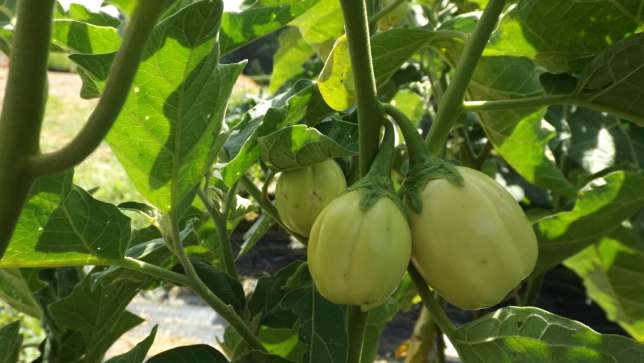Nigeria’s culinary landscape is rich with diverse flavors and ingredients, each contributing to the vibrant tapestry of its cuisine. Among these treasures is the garden egg, a versatile and nutritious vegetable that holds a cherished place in Nigerian dishes. From soups to stews and salads, garden egg adds a unique taste and texture, elevating the culinary experience. In this article, we explore the art of growing garden egg in your garden and delve into its importance in Nigerian cuisine.
Growing Garden Egg in Your Garden
1. Choose the Right Variety:
Before embarking on your garden egg journey, it’s essential to select the appropriate variety for your garden. In Nigeria, the most common types are the oval-shaped green garden egg and the smaller, rounder white garden egg. Choose a variety that suits your climate and soil conditions.
2. Prepare the Soil:
Garden egg thrives in well-drained soil with plenty of organic matter. Prepare your garden bed by loosening the soil and incorporating compost or aged manure to improve fertility. Ensure proper drainage to prevent waterlogging, which can lead to root rot.
3. Planting:
Garden egg seeds can be sown directly into the garden or started indoors in seed trays. Plant seeds 1/2 to 1 inch deep and space them about 12 to 18 inches apart. Ensure adequate sunlight for optimal growth, as garden egg plants require full sun.
4. Watering and Care:
Keep the soil consistently moist but not waterlogged. Water deeply to encourage strong root development. Mulching around the plants helps retain moisture and suppresses weeds. Regularly inspect for pests and diseases, and take appropriate measures to control them.
5. Harvesting:
Garden egg fruits are ready for harvest 8-12 weeks after planting, depending on the variety. Harvest when the fruits are firm, glossy, and have reached the desired size. Use a sharp knife or scissors to cut the fruits from the plant, taking care not to damage the stems.
The Importance of Garden Egg in Nigerian Dishes
1. Nutritional Benefits:
Garden egg is a nutritional powerhouse, rich in vitamins, minerals, and antioxidants. It is a good source of fiber, potassium, and vitamins B and C, promoting digestive health, heart health, and overall well-being.
2. Culinary Versatility:
Garden egg is a versatile ingredient in Nigerian cuisine, featuring prominently in various dishes. It can be used in soups, stews, sauces, and salads, adding depth of flavor and texture to the culinary creations.
3. Flavor Enhancement:
Garden egg has a unique taste that enhances the flavor profile of dishes it is incorporated into. Whether stewed with tomatoes and spices, grilled, or blended into sauces, garden egg imparts a delicious, slightly bitter-sweet flavor that complements a wide range of ingredients.
4. Cultural Significance:
Garden egg holds cultural significance in Nigerian cuisine, often featured in traditional dishes and festive celebrations. It is cherished for its role in bringing families and communities together around the dining table, sharing in the joys of food and fellowship
Conclusion
Growing garden egg in your garden not only offers the satisfaction of cultivating your own food but also provides a gateway to exploring the rich culinary heritage of Nigeria. From planting to harvest, and from the garden to the kitchen, the journey of garden egg is one of nourishment, flavor, and cultural connection. Embrace the beauty of this humble vegetable, and let it enrich your garden and your table with its bountiful offerings.





